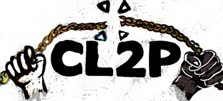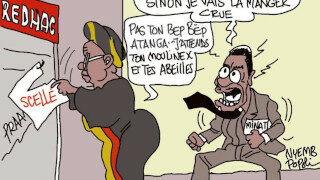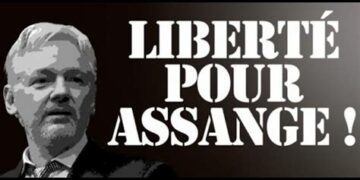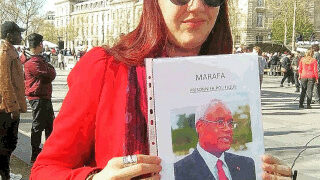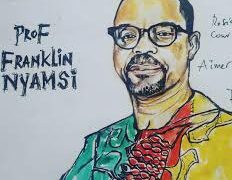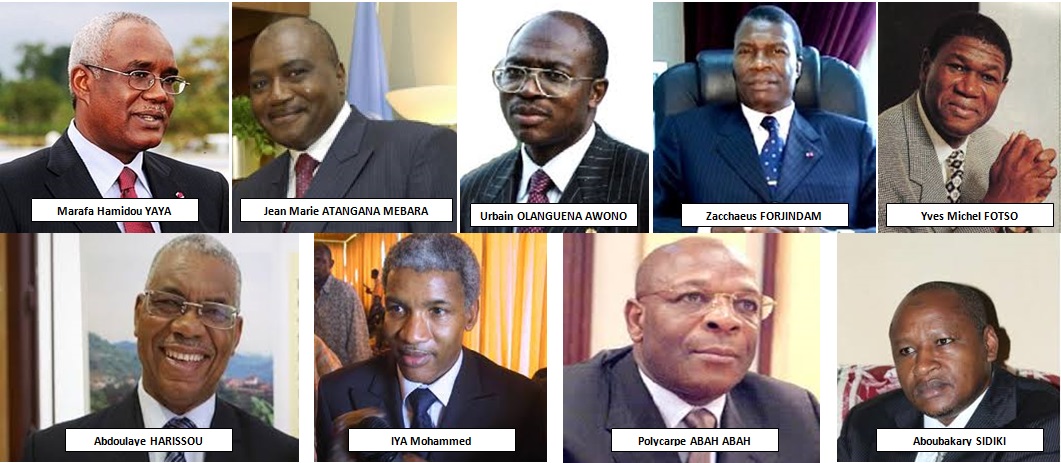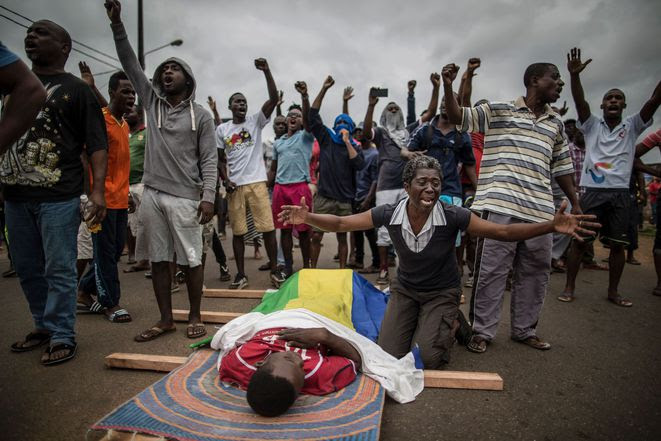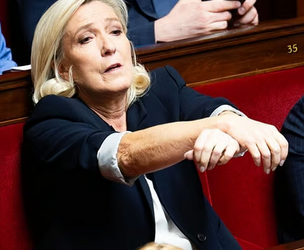Dans un contexte totalitaire où les prisonniers d’opinion sont assez habilement présentés comme des “prévaricateurs de la fortune public”,donc des délinquants de droit commun,en raison notamment du fait qu’ils émanent presque tous des entrailles de la dictature trentenaire tant décriée de Paul BIYA (83 ans, dont 33 de règne sans interruption); il n’a jamais été aisé de conceptualiser le phénomène.
Après notre dernière publication intitulée: “Cameroun: la figure de l’opposant: Genealogie d’une déchéance de Droits Civiques” nous nous sommes vus reprochés l’idée que Marafa Hamidou Yaya, célèbre prisonnier politique camerounais, s’est découvert la qualité d’opposant uniquement au moment de son incarcération. Il serait donc un opportuniste ou un “minable” aux dires de monsieur Issa Tchiroma Bakary, ministre camerounais de la communication et porte-parole du gouvernement. Les notions de prisonnier politique et de procès politique ont été tellement dénaturées au Cameroun, que l’urgence d’une pédagogie est devenue nécessaire, afin de repreciser puis de clarifier ce que nous entendons par prisonnier politique et procès politique au Cameroun.
1) Qu’est ce qu’un prisonnier et un procès politique au Cameroun?
Le statut de prisonnier politique ne se réduit guère au coup de force politique contre la sûreté de l’État ou aux seuls délits d’opinion. Toute personne qui se retrouve enfermée souvent bien malgré elle dans une criminalisation de la compétition politique conjuguée à une politisation de la répression puis à une instrumentalisation de la Justice…est un prisonnier politique au Cameroun. Le prisonnier politique est un coupable d’office qui subit la restriction de ses droits civils et politiques. Les recours légaux qui peuvent rétablir son innocence sont systématiquement fermés ou bloqués par un mur épais et sourd en béton.
Il en découle un sentiment légitime d’être enfermé dans un carcan Kafkaesque sans aucune protection légale ni juridique. Il est d’emblée placé en situation de détention arbitraire à l’instar de Jean-Marie Atangana Mebara, ancien secrétaire général à la Présidence du Cameroun, reconnu comme tel par la Commission Africaine des Droits de l’Homme et des Peuples; ou le Ministre d’État Marafa Hamidou Yaya qui a reconnu que ses déboires politiques ont commencé au moment où il a demandé au Président Paul Biya de ne plus se représenter en 2011. Dans un pays où une vraie compétition électorale digne de ce nom est rare pour ne pas dire inexistante, cette demande a été assimilé à un vrai crime de lèse-majesté.
Ainsi dans le contexte vicié camerounais, pour pouvoir se déclarer et/ou devenir un prisonnier politique il faut aussi être capable de transformer la seule plate-forme autorisée qu’est le tribunal en sphère politique. C’est une démarche qui attire bien évidemment les foudres du régime en place, mais qui a comme principal mérite de sensibiliser l’opinion publique puis d’alerter les médias sur la nature du processus juridique et judiciaire enclenché contre l’infortuné du moment.
2) Procès Politique et Quiproquo Judiciaire
Se déclarer prisonnier politique, c’est aussi mettre le gouvernement devant un quiproquo légal et juridique, puis les contresens qui en découlent. Une dictature ne pourra jamais admettre que des purges politiques existent. Ce serait se tirer une balle dans les pieds et reconnaître que le système politique n’est pas démocratique. Les prisonniers politiques ou “minables” sont donc être jugés comme des simples criminels de droit commun. Le hic c’est que ces prisonniers dits de droit commun sont jugés par des tribunaux spéciaux voire d’exception (à l’instar du Tribunal Criminel Spécial au Cameroun) et que leurs dossiers d’instruction ne suivent pas le canal judiciaire traditionnel, mais sont souvent instruits par des services spéciaux au nom de la sécurité nationale ou simplement du fait du prince.
Entre autres, le prévenu ne peut comparaître libre, est systématiquement placé en détention provisoire, alors même qu’il devrait normalement jouir du statut de prévenu de droit commun au moins jusqu’au prononcé du jugement. Cette privatisation du dossier judiciaire a des répercussions sur la défense, puisque les avocats n’ont généralement pas ou partiellement accès à tous les dossiers au nom de la sécurité nationale.
Ces prisonniers, pour la plupart, sont aussi embastillés, non pas dans des prisons conventionnelles mais dans des institutions militarisées ou de sécurité dite maximale, ce que Joël Didier Engo a appelé des “mouroirs concentrationnaires”.
3) Prisonnier politique, Verdict et État d’Exception
Dans une procédure politique, le verdict est prédéterminé d’avance parce que la justice passe aux ordres du politique. Un prisonnier politique, par nature, ne gagne jamais son procès, y compris défendu par les meilleurs avocats. En fait le prisonnier politique sert à ce que le philosophe Italien Giorgio Agamben appelle “Homo Sacer.” L’homo Sacer est un être qui ne peut-être sacrifié mais sa vie est disposable. Il est embastillé et torturé mais il sert d’abord à établir un état d’exception dans lequel le souverain gouverne par décret. En effet, même comme la vie du Homo Sacer est disposable, il est en même temps un instrument essentiel du régime avec l’unique caractéristique qu’il est à la fois au centre et à la marge du régime.
La fonction de l’Homo Sacer c’est de donner une onction de légitimité à la dictature puisqu’il est exploité – ici sacrifié – pour justifier un état d’exception qui est en vérité ce qu’Achille Mbembe appelle “necropolitique”, un régime politique ou l’expression du pouvoir se réduit à la décision de vie et de mort. À ce titre, la raison d’être de homo Sacer est de servir à tout moment d’alibi politique à une dictature. Il est intéressant de noter que le récent livre du Ministre d’État Jean Marie Atagana Mebara a été préfacé par Eric Chinje, ce journaliste autrefois présentateur du journal télévisé à la télévision nationale du Cameroun à qui le président Biya avait confié qu’il avait ce droit de “vie et de mort” sur chaque camerounais. À ce sujet, Me Claude Assira, conseil de Jean-Marie Atangana Mebara explique objectivement que «L’exécutif camerounais utilise souvent l’opération Épervier à des fins purement politiciennes de propagande, d’intimidation ou de vindicte».
4) Le Souverain, l’Homo Sacer et Souci de Soi
Le paradoxe du Homo Sacer, c’est que le souverain ou dictateur peut aussi même se retrouver dans la situation d’un homo Sacer. Une des raisons que les dictateurs s’acharnent à retenir le pouvoir, c’est la paranoïa qu’une fois hors du pouvoir eux-mêmes peuvent devenir des homos sacer et être extradés à La Haye comme Laurent Gbagbo, ou Hissein Habre au Sénégal ou tous les génocidaires Rwandais en Tanzanie. Et l’Homo Sacer peut demain tout aussi devenir souverain comme Nelson Mandela.
La politique est un monde brutal où les coups reçus portent la marque de l’authenticité. Ce qui est important de noter, c’est que tous ceux qui restent ou se contentent d’être à la marge et se complaisent d’infantiliser ou dans le traitement condescendant voire méprisant à l’égard de ces combattants politiques, ne veulent surtout pas faire des vagues ou jouent au bon griot au nom de l’instinct naturel de survie et/ou d’éloignement personnel de la sphère politique. Les prisonniers politiques d’aujourd’hui seront certainement les leaders de demain parce que l’Histoire est de leur côté.
Olivier Tchouaffe PhD et Engo Joël Didier, Président du CL2P
Le Comité de Libération des Prisonniers Politiques (CL2P)
Notes on Political Prisoners and Political trials in Cameroon
By Olivier Tchouaffe PhD and Engo Joël Didier, President of the CL2P
During our last intervention with the paper entitled: « Cameroon: Faces of the opponent: genealogy of revocation of civil rights », we were reproached for our qualification of Marafa Hamidou Yaya as a political prisoner. Our critics assailed us with an anti-Marafa’s rhetoric fronting arguments that Marafa Hamidou Yaya has begun using the terms political prisoner just in the time of his incarceration. The subtext of these assertions is that Marafa is actually a shallow opportunist or a « crummy » according to Mr. Issa Tchiroma Bakary, Minister of communication and Government spokesman as the regime of Yaoundé continues in its escalation of political purges in the name of fighting against corruption. The interpretation of political prisoner and political trial has so many distortions in Cameroun that a pedagogy on the deconstruction of the political prisoner and political trial is necessary in order to clarify and enhance the signification of what we mean by political prisoner and political trial in Cameroon and correct the willful misperceptions and distortions around notions of political prisoners and political trials in that country.
1) What is a political prisoner and a political trial in Cameroon?
The status of political prisoner is not reduced to perpetrators of political coup against the security of the State or crimes of opinion. Every litigant caught in the middle of the criminalization of political conflicts, the politicization of repressive tactics and the judiciary is a political prisoner. A political prisoner is a litigant whose civil rights are compromised and the avenues for legal remedies to get justice are closed by a wall of deafness built in concrete. The political prisoner is always locked up in a Kafkaesque straitjacket with no legal protection. In short, in arbitrary detention as the case of Jean-Marie Atangana Mebara recognized as such by the Human Rights Commission of the African Unity. Such responses by human rights organizations are continuously ignored by the regime of Yaoundé.
Among others, the minister of State Marafa Hamidou Yaya has recognized that his political setbacks began when he asked the president not to represent himself to the election of 2011. In a country where real electoral competition worthy of the name are rare, this request has been received as a true crime of lese-majeste. Therefore, to declare oneself a political prisoner is to transform the only platform allows which is the trial into a political forum. It is an action that covets a stir and relays in the media to alert public opinion on the screws of forms in the legal process.
2) Political trial and judicial Quiproquo
To declare oneself a political prisoner serves to highlight the legal quiproquo and counter-sense is the government’s legal strategy. The reality is that a dictatorship can never admit that political purges exist. To do so is a shot in the feet and the recognition that the system is not democratic. Technically, political or « shabby » prisoners should be judged as simple common criminals. The problems are that these so called “common law prisoners” are judged by special courts and that their records of instruction do not follow the traditional affecting channel but are often manufactured by special services on behalf of the national security or simply because of the prince. Among other things, the accused cannot appear on his own recognition as defendants. The political prisoner, in Cameroon, is always placed on provisional detention whereas, as “common law defendant,” they should normally enjoy the same status as the accused’s common law
This privatization of the judicial process has an impact on the political prisoner’s defense, partly, because his lawyers do not generally have access to all his records because of national security. These political prisoners, for the most part, are not housed in conventional prisons but in militarized institutions or so-called maximum security prison, what Joal Didier Engo called the « concentration camp cemeteries. »
3) Political prisoner, Verdict and State of Exception
In a political process, the verdict is pre-determined because justice goes to the orders of the political. A political prisoner, by nature, never win his trial even with the best legal counsels. In fact, the political prisoner is transformed into what the Italian philosopher Giorgio Agamben called « Homo Sacer ». The Homo Sacer is a being that cannot be sacrificed but his life is disposable. His civil rights are revoked by the state but the Homo Sacer serves, firstly, to establish a State of emergency where the ruler governs by Decree. Thus, even as the life of the Homo Sacer is disposable, he is at the same time an instrument essential to the regime with the unique characteristic that the Homo Sacer is both at the center and at the margins of the regime.
The function of the Homo Sacer is to give a legitimate anointing to the dictatorship to justify a State of emergency which is verily what Achille Mbembe called « necropolitc », a political regime where the expression of power is reduced to the decision of who should live or who should die. As such, the object of the homo Sacer is an alibi to legitimate repressive policies. And we just want to note that the recent book by Atangana Mebara was prefaced by Eric Chinje, a journalist to whom the president had confided that he had the right of life and death over all Cameroonians. In this regard, Me Claude Assira objectively argues that ‘the Executive often uses the Epervier operation for purely political purposes of propaganda, intimidation or retribution’.
4) The sovereign, The Homo Sacer and The Souci de Soi
The paradox of the Homo Sacer, is that the ruler or dictator can also be turned into a homo Sacer. One of the reasons that dictators are concerned to retain power, it is paranoia that once out of power themselves can become of Homo Sacer and find themselves at La Hague’s Tribunal as Laurent Gbagbo or Hissein Habre in Senegal or all genocidal Rwandans in Tanzania. And the Homo Sacer may tomorrow find themselves as sovereign as Nelson Mandela.
Politics is a brutal world where the blows received are trademarks of authenticity. What is important to note is that, all of those who remain on the sidelines or trying to infantilize or treat these political combatants with condescension, are compromising their own political position. The political prisoners of today will certainly be the leaders of tomorrow because history is on their side.
Olivier Tchouaffe PhD and Engo Joël Didier, President of the CL2P
Le Comité de Libération des Prisonniers Politiques (CL2P)
